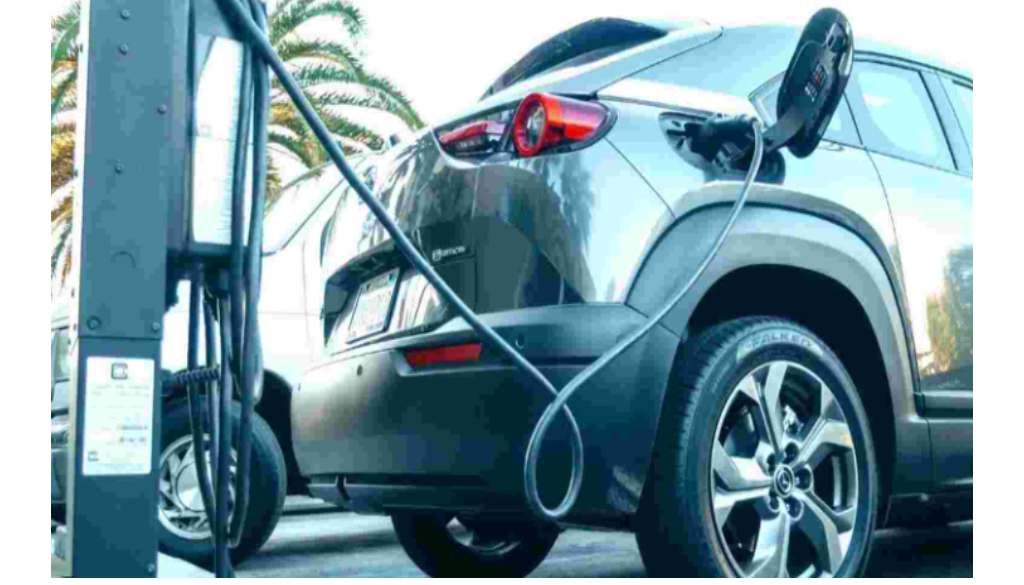Pune and Mumbai Consumers Prioritise Sustainability: 99% Urge Last-Mile Delivery Companies to Switch to EVs

Pune, 9th September 2024: As Mumbai and Pune brace for the onset of winters- a period marked with deteriorating air quality, a consumer survey has revealed that 99% of the respondents across both cities recognise the importance of last-mile delivery companies adopting Electric Vehicle (EV) fleets to reduce air pollution and emissions. Further, 70% of the total consumers surveyed are willing to switch to brands with strong emission reduction committments and action.
Last Mile Delivery refers to the transportation of goods from its distribution hub to the door of the customer. As of 2024, the last mile delivery sector alone is responsible for the emission of 500,000 tonnes of CO2, a greenhouse gas, into the atmosphere.
These findings, which are a part of a consumer survey, were released by the Sustainability Mobility Network (SMN), during a webinar on Monday, September 9, which is observed as World EV Day.
Titled ‘Consumer Perceptions & Insights in the Last Mile Delivery Sector for the Transition to Electric Vehicles (EVs)’, the survey was conducted to evaluate the key indicators around Last Mile Delivery companies’ fleet transitioning to EVs. It measures public perception of air pollution linked to last mile deliveries and scale of demand for transition to EV by brands involved in deliveries, including – Amazon, Flipkart, Zomato, Swiggy, Nykaa, Ajio, BigBasket, Jio Mart, Snapdeal, Zepto, DHL/BlueDart, Swiggy Mart, Grofers/Blinkit, DTDC, TataCliq, Deliver, Dunzo, Fedex and Others.
Key highlights from Pune/Pimpri Chinchwad
99.8 % of respondents stated that EV transition of fleets by companies is Very Important to Somewhat Important in reducing air pollution and emissions
85.5% respondents indicated willingness to switch to a company based on their stronger emissions reductions commitments and actions
Pune has the highest awareness levels on air quality 73% of respondents
76.3% of respondents in Pune said that they have received very effective communication from companies on their air pollution reduction measures.
Amazon is most widely used for Last Mile Deliveries at 89%followed by Flipkart 71%
81.8 % of consumers have received information and are aware of EV transition plans by companies.
66.6 % of respondents have expressed complete trust in company commitments in company commitments and initiatives on EV transition.
85.8 % of the respondents stated that they would prioritise shopping from a company which actively supports its workers in ensuring a just EV transition.
86.3% of respondents expressed their willingness to switch from their current brand to a competitor brand if the competitor adheres to the transition requirements of their states, and they also indicated they would recommend it to others. This is the highest in all the surveyed cities.
Key Highlights from Mumbai
99.8 % of respondents stated that EV transition of fleets by companies is Very Important to Somewhat Important in reducing air pollution and emissions
55% respondentsindicated willingness to switch to a company based on their stronger emissions reductions commitments and actions
26% respondents have high levels of awareness around air quality in the city
Mumbai is the city with the lowest number of consumers nationwide saying they had received very effective communication (22.4%) from companies on their air pollution reduction measures.
44.7 % of consumers have received information and are aware of EV transition plans by companies.
19 % of respondents have expressed complete trust in company commitments in company commitments and initiatives on EV transition.
Amazon is most widely used for Last Mile Deliveries at 82%followed by Flipkart 71% followed by zomato 45%
47.9 % of the respondents stated that they would prioritise shopping from a company which actively supports its workers in ensuring a just EV transition.
The consensus among participants was clear- companies must prioritise sustainability without resorting to price hikes. They emphasised that businesses should bear the costs associated with sustainability initiatives, rather than burdening consumers with additional charges.
A total of 760 consumers were surveyed from Mumbai (380) & Pune (380). Meanwhile respondents were surveyed across 10 cities- Delhi (380), Asansol (373) & Kolkata 371) (West Bengal), Coimbatore (380) and Chennai (372) (Tamil Nadu), Bangalore (372) and Hubli-Dharwad (374) (Karnataka) and Ahmedabad (370) (Gujarat).
Abhijit Ghorpade, Director, Maharashtra State Climate Action Cell
“The last mile delivery (LMD) sector has gained importance with the rising popularity of e-commerce. It has not only enhanced consumer convenience, but also contributed to higher emissions. Public policy must be people-centric. The survey report comes at a crucial time, when our landmark EV Policy is slated for revision next year. It highlights how the LMD sector is influenced by consumer preferences. It’s encouraging to see that a significant portion of respondents are willing to switch brands based on the company’s commitment to reducing emissions and compliance with state regulations, a clear call to action for companies in the LMD sector to adapt their fleet operations and embrace more sustainable solutions.”
Bhagwan Keshbhat, CEO, Waatavaran Foundation
“Air quality in Mumbai and pune have been deteriorating rapidly in recent years. The extreme surge in vehicles compounded by the advent of quick commerce, food and e-commerce delivery vehicles are adding to the cities’ woes. We need these delivery vehicles to be urgently shifted to Electric Vehicles (EV) to reduce emissions and give our children the clean air they deserve. I hope this report encourages the accelerated EV transition by companies listening to their core consumers.”
Saudamini Zutshi, Manager, Business Development and Partnerships at Purpose
“The consumer perception survey is a valuable tool for companies to understand what consumers want, for more company x customer engagement and to build these insights into their communication and inform their decision making,” said
Kumar Nitant, Manager – Energy Transitions, Climate Group
“Businesses taking EV commitments not only showcase their sustainable practices but also inspire others in the sector for the e-transition. Our global initiatives, EV100 and EV100+ bring together forward-looking companies committed to accelerating the transition to electric vehicles (EVs) by 2030 and 2040. While active communication around these commitments successfully spotlights the companies, it also creates a strong demand signal for the OEMs,” said
Sanjiv Gopal, Chief of Strategy, Asar
“As companies increasingly embrace their corporate responsibility, integrating accelerated EV transition into their plans is both a valuable contribution and strategic opportunity. We hope the insights of the report will motivate companies to share their transition plans in a more transparent and effective manner.





